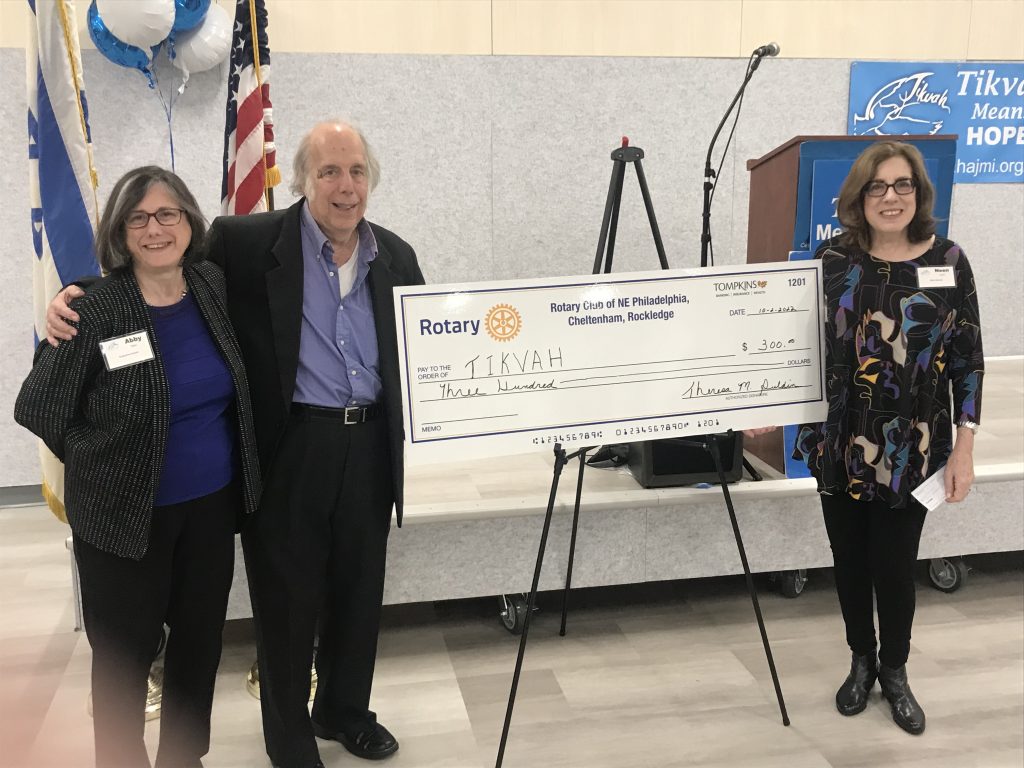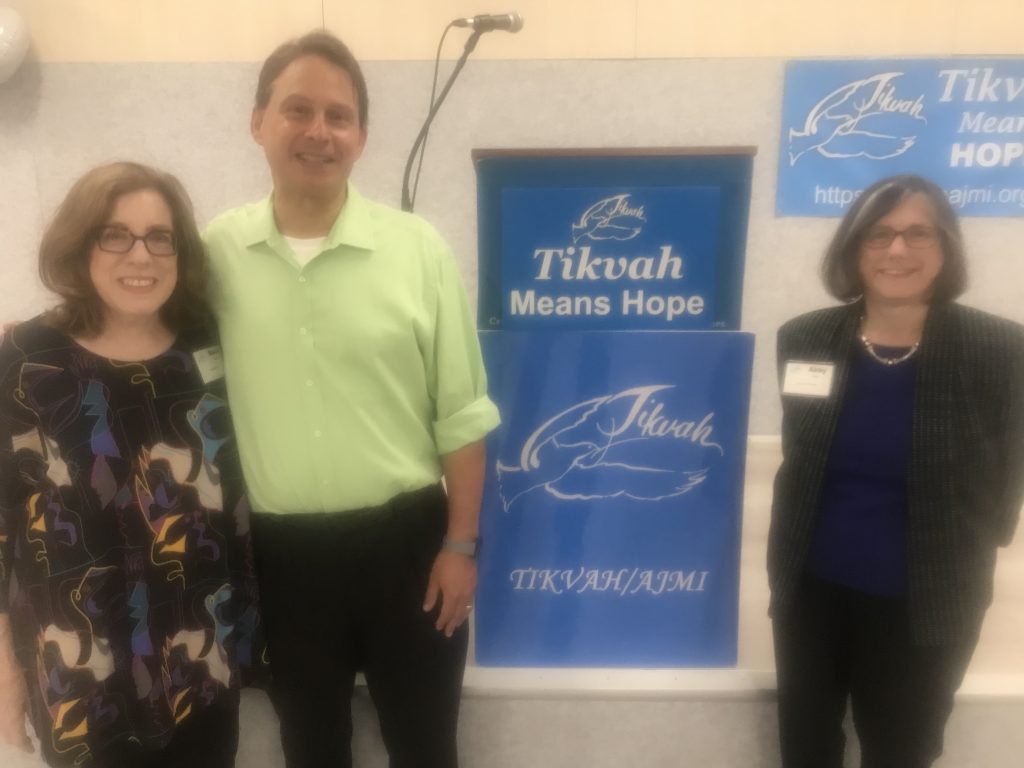

The nonprofit Tikvah on Sunday afternoon welcomed psychologist and Temple professor Mark Salzer to KleinLife to lead a discussion on mental illness.
Salzer, of Temple’s social and behavioral sciences department, spoke on Community Living and Participation for People with Serious Mental Illnesses.
Abby Gilbert is executive director of Tikvah, a membership organization that serves adults with mental illness and their families. It was founded in 1991 as Advocates for the Jewish Mentally Ill. Tikvah is the Hebrew word for hope and is supported by grants from the city, Jewish Federation of Greater Philadelphia, several family foundations and more than 100 individual donors. The group’s program office is located in KleinLIfe, with Gilbert saying she is “delighted with that partnership.” Tikvah welcomes and serves people of all faiths.
Neen Davis, president of Tikvah’s board of directors, introduced Salzer, a Minnesota native who wants community inclusion and participation for people with mental health issues.
As an example of community inclusion, Salzer recalled watching a 2019 CNN report about a 4-year-old autistic boy named Braysen, who was on a flight from San Diego to Houston. The boy did not want to sit in his seat for takeoff, so a stewardess allowed him to sit in his mom’s lap. As the plane was in the air, he accidentally kicked an off-duty stewardess, who later gave his mom a hug and a note of support. Braysen also kicked the seat of a man in first class, who responded by high-fiving him.
People with significant mental health issues should not be discriminated against or prejudged, Salzer said. Rather, they should be encouraged to take part in activities such as work, school, recreation, faith, dating, parenting and volunteering.
“Doing these things is very, very important for people,” he said.
Salzer cited data showing shorter life expectancy, higher unemployment and lower education levels for the mentally ill. In addition, they are generally more sedentary, less physically active and more isolated than the general population.
While he knows that some people believe that mentally ill people can’t, shouldn’t or don’t want to participate in society and would be better off staying home, he said data shows that’s not the case.
As for the principles of inclusion, Salzer said, “We’re looking at what can this person do.” Society should not merely tolerate them, he said. After all, they have the same hopes, dreams and desires as anyone.
“Welcome and embrace those differences,” he said.
Salzer credited Tikvah for providing a supported employment program. He said society should consider aiding the mentally ill as a “medical necessity,” not merely doing a good deed. They should be considered “people,” not “patients” and labeled “experiencing disability,” not disabled.
Following the presentation, Rotary Club of Philadelphia, Cheltenham, Rockledge president David Ehrenkrantz presented Tikvah with a $300 donation. ••
For more information on Tikvah, visit www.tikvahajmi.org.






